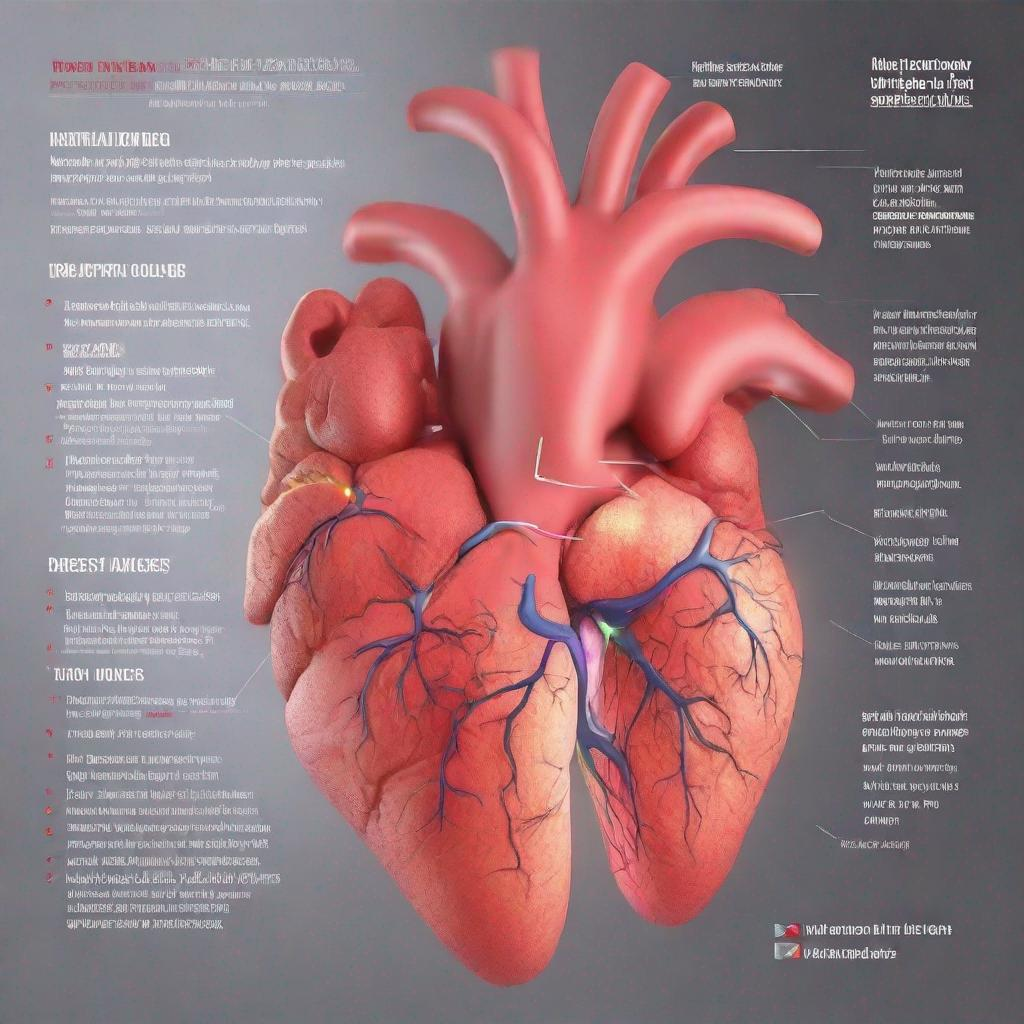## Rheumatic Heart Disease: An Overview
**Introduction**
Rheumatic heart disease is a serious condition that affects the heart. It is caused by rheumatic fever, an autoimmune disease that occurs when the body reacts to a Group A streptococcal (GAS) bacterial infection, such as strep throat or scarlet fever. The inflammation caused by rheumatic fever can damage the heart valves, lining of the heart (endocardium), and the sac surrounding the heart (pericardium).
**Symptoms**
The symptoms of rheumatic heart disease can vary depending on the severity of the condition. Common symptoms include:
* Joint pain (polyarthritis)
* Fatigue
* Fever
* Chorea (involuntary jerking movements)
* Erythema marginatum (a red rash)
* Subcutaneous nodules (painful lumps under the skin)
**Diagnosis**
To diagnose rheumatic heart disease, a doctor will perform a physical exam and ask about your medical history. Tests that may be used to confirm the diagnosis include:
* **Echocardiography:** Uses sound waves to create images of the heart and its valves.
* **Cardiac catheterization:** A thin tube is inserted into a blood vessel in the groin and guided to the heart. Dye is injected through the tube to visualize the heart and valves.
**Prevention**
The best way to prevent rheumatic heart disease is to prevent GAS infections. This can be done by:
* Washing hands frequently
* Covering your mouth and nose when you cough or sneeze
* Staying home from school or work if you have a GAS infection
* Getting treatment for GAS infections promptly with antibiotics
**Treatment**
Treatment for rheumatic heart disease depends on the severity of the condition. It may include:
* **Antibiotics:** To treat and prevent GAS infections.
* **Anti-inflammatory medications:** To reduce inflammation in the heart.
* **Diuretics:** To remove excess fluid from the body.
* **Cardiac glycosides:** To strengthen the heart muscle.
* **Antiarrhythmics:** To control irregular heartbeats.
* **Anticoagulants:** To prevent blood clots.
* **Thrombolytics:** To dissolve blood clots.
**Complications**
Rheumatic heart disease can lead to serious complications, including:
* Heart failure
* Atrial fibrillation
* Stroke
* Valvular regurgitation or stenosis (leaking or narrowing of the heart valves)
**Conclusion**
Rheumatic heart disease is a preventable condition that can cause significant damage to the heart. By understanding the symptoms, diagnosis, prevention, and treatment options, you can protect yourself and your loved ones from this serious illness.




